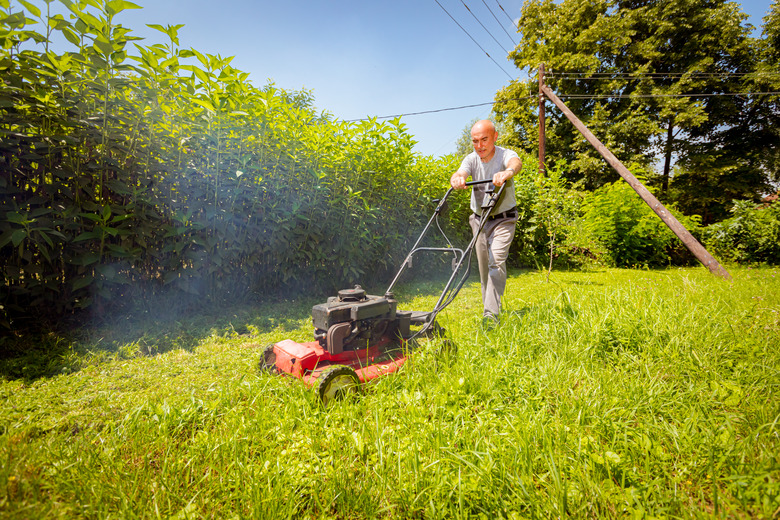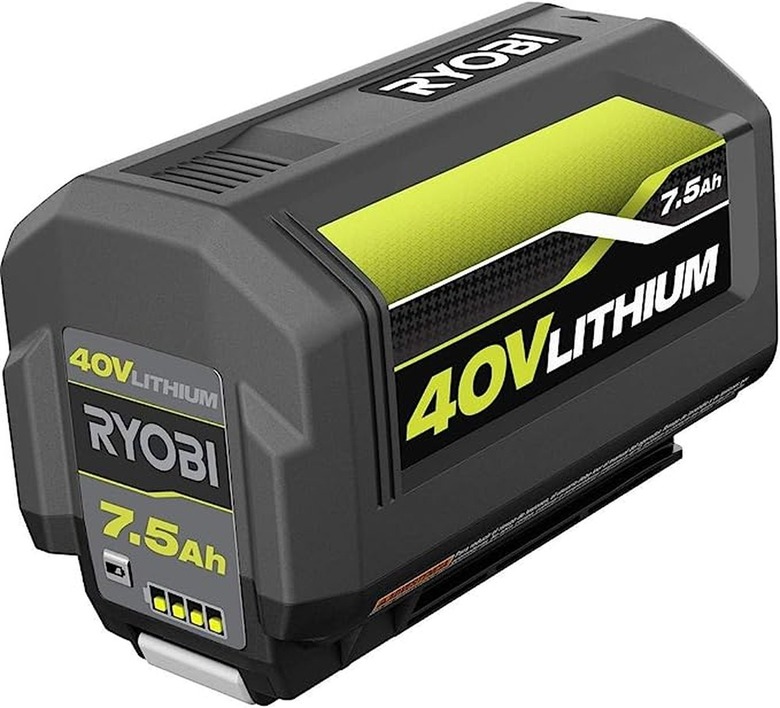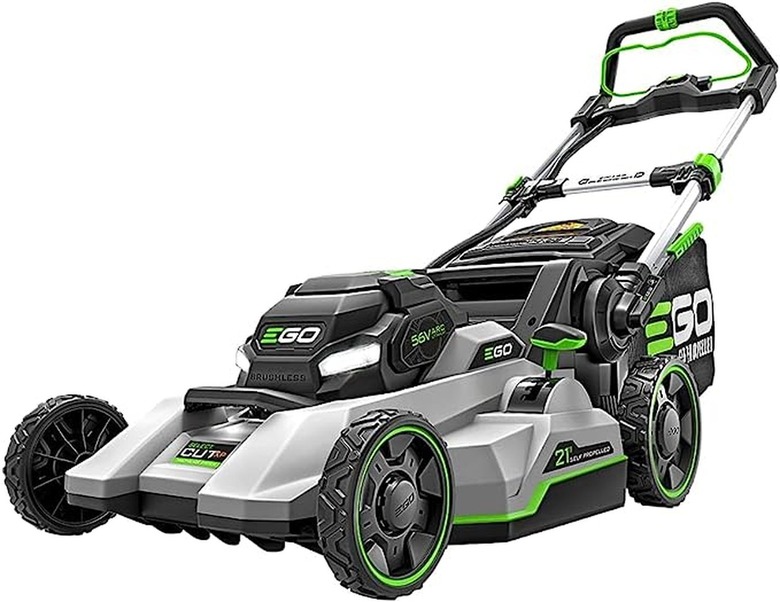Electric Vs. Gas Lawn Mower
The choice between an electric vs. gas lawn mower comes with several considerations, but the decision is becoming easier to make. In the past, the best electric lawn mower was a lightweight, corded tool suitable only for smaller residential lawns (assuming the grass wasn't too long), while for large or challenging lawns, gas-powered was undoubtedly the way to go. And then there was the cord, which got in the way and limited the distance you could go from the power outlet with an electric mower.
These days, quality battery-powered electric mowers perform comparably to the best gas-powered lawn mowers, and electrics come with some important advantages; namely, less noise, no exhaust, and virtually no maintenance. Gas mowers may still be preferred for the toughest mowing jobs, but that, too, may be changing, as gas mowers may become obsolete in the near future.
Are Gas Mowers Going Away?
Are Gas Mowers Going Away?
Honda, a leading mower manufacturer, has announced it will stop manufacturing gas mowers in September 2023, and the state of California plans to ban the sale of gas-powered tools in 2024. This trend leads Brandon Haley, who oversees grounds services for over 1,000 schools nationwide, to predict a full-on transition to electric lawn care tools in the not-too-distant future.
Bryan Clayton heads up his own lawn care company and has been mowing for 22 years. His take on the question of an electric vs. gas lawn mower: "There's no definitive answer to this question. The 'best' choice depends on your specific situation and preferences."
Are gas mowers going away? Do electric mowers have enough power? Here, we take a look at the electric vs. gas lawn mower debate.
Do Electric Lawn Mowers Have Enough Power?
Do Electric Lawn Mowers Have Enough Power?
It's difficult to compare the power of an electric vs. gas lawn mower because their power output is measured in different ways. Manufacturers also tend to make this issue unnecessarily confusing. For starters, the gasoline engine of a gas mower has an output measured in horsepower (HP). An electric mower is powered by an electric motor and may be rated in watts (the standard measure of electrical power output). More often, however, the best indication of power is the battery voltage — typically 40 volts and up for standard walk-behind electric mowers.
Another measure of power in lawn mowers is torque, which is twisting or rotational force. Generally speaking, gas mowers provide more torque than electric mowers, which means greater cutting force at the blade. This makes gas mowers better for heavy-duty work like commercial lawn maintenance or cutting very tall or dense grass. But for the typical residential lawn, both gas and electric mowers provide plenty of cutting power.
Comparing Lawn Mower Run Time
A more meaningful measure of power is run time, or how long the mower will run before it needs refueling — or recharging. Gas mowers essentially never run out of power as long as you refill them with gasoline. Electric mowers with cords also run indefinitely as long as the cord can reach an outlet. The best indication of run time on a battery powered mower is amp-hours (Ah). In simple terms, this is how much juice the battery stores on a full charge, and therefore how long the mower runs before the battery is dead and needs recharging.
You can think of Ah as battery capacity. The higher the Ah number, the more electricity the battery can store. Because voltage and some other factors come into play, it's not possible to translate amp-hours directly to run time, so you have to look at manufacturer specs as well as reviews. User comments are particularly helpful here.
As an example, a standard-size (21-inch) non-self-propelled mower with a 40-volt, 6.0 Ah battery can mow for about 45 minutes on a full charge. That's enough time to mow about a half-acre of grass under normal conditions. Self-propelled mowers require more battery capacity and usually should have batteries rated for 7.5 Ah or more.
Electric Lawn Mower Pros & Cons
Pros:
- No exhaust
- Minimal maintenance
- Lightweight
- Easy to store
- No gas to store or use
- Quiet
Cons:
- Limited run time
- Less powerful motor
- Battery charging
Gas Lawn Mower Pros & Cons
Pros:
- Powerful engine
- Unlimited run time
Cons:
- Significant air polluter
- Relatively high-maintenance
- Less reliable starting
- Noisy
- Gas purchase and storage
Disadvantages of Electric Lawn Mowers
Disadvantages of Electric Lawn Mowers
Because they generally don't generate as much torque as gas mowers, electric lawn mowers typically aren't as good as gas for really tough jobs, like mowing through tall grass. They also have a limited run time before needing a battery recharge. But that's pretty much where the disadvantages end. And if you're just mowing a standard lawn on a regular basis, the main disadvantages of electric mowers don't really apply.
Disadvantages of Gas-Powered Lawn Mowers
Disadvantages of Gas-Powered Lawn Mowers
Clayton says: "Gas mowers, in my experience, offer more power and run time, making them suitable for large lawns or properties with tough, dense grass. However, they're generally noisier and emit fumes, and they require regular maintenance, like oil changes and spark plug replacements."
Anyone who has tried to start even the best gas-powered lawn mower in the spring after forgetting to drain the fuel before storing it for the winter will appreciate the importance of maintenance: chances are, the mower won't start and will need to have its carburetor cleaned. And when a lawn mower dies after it's been running — and it's not out of gas — it probably needs a repair. In addition, gas mowers are heavier and generally harder to maneuver than electrics.
Of course, you also have to put gas in a lawn mower, and gasoline has its own maintenance issues. Gas has a shelf life of only about six months and should not be used when it's older than that. You can extend the life of a tank of gas by adding a fuel stabilizer, but many small-engine experts will tell you not to both with that; it's better for your mower's engine to use fresh fuel without stabilizer.
Why Switch to an Electric Lawn Mower?
Why Switch to an Electric Lawn Mower?
If Haley's instincts are right, the comparison of electric vs. gas lawn mowers may be moot because you might not be able to purchase a gas mower in the near future. Even though that day hasn't come, Haley thinks you should get ready for the transition by appreciating the benefits of electric lawn mowers and electric garden tools in general. His list of reasons to go electric include:
- Ease: There is no gas to store and a significant reduction in maintenance. With the addition of two-cycle oil (required on some mowers), a gallon of mix-oil gas easily costs $5 to $7 or more. It also has a short shelf life, which causes failure of carburetors and other fuel components in traditional gas equipment. Being able to charge a battery instead of going to the gas station is a big selling point.
- Less maintenance: All gas engines need maintenance. Preventative maintenance
consists of simple tasks, such as changing spark plugs and air filters, but it costs money and takes time. More involved repairs, such as carburetor replacement, can easily cost 25 to 50 percent of a replacement machine. - Easy to start and operate: One of the most beautiful aspects of an electric piece of equipment is that you can simply pull the trigger and it operates. Anyone who has tried to start a gasoline small engine that has not been used all winter can understand the frustration.
- Emissions reduction: Small engine equipment produces enormous amounts of carbon monoxide, nitrogen oxides, and hydrocarbons. Studies have shown that 10 minutes of using a leaf blower emits more pollution than driving a car over a hundred miles.
- Noise reduction: Noise pollution awareness has grown in recent years. Many municipalities are banning leaf blowers or considering it because of noise. Electric lawn mowers are significantly quieter than gas mowers.
- No gasoline fumes: You can store electric equipment in your garage without fear of your house smelling like gasoline.
Battery Mowers Are Getting Better
Battery Mowers Are Getting Better
In the gas vs. battery lawn mower controversy, an important motivation for sticking with gas has traditionally been the extra features, like self-drive and mulching, but not anymore. With machines like the Ego and Greenworks self-propelled mowers now on the market, you no longer have to sacrifice these conveniences to go green.
The Ego Power+ 21" Select Cut XP battery-powered mower features self-drive, a touch control to change speed, a multiblade system for mulching, and seven different height settings, all fueled by a 56-volt ARC Lithium battery. The manufacturer claims a 75-minute run time, but one reviewer points out that this can be reduced by half when you keep the self-propelled feature engaged.
If this isn't the best electric lawn mower out there, it's close, and it's an example of the progress being made in the development of electric mowers, particularly battery-powered. If you've been obsessing over the reasons electric lawn mowers are bad, this should nudge you off the fence and onto the electric side of the gas vs. battery lawn mower issue.
Is an Electric Mower Better Than Gas?
Is an Electric Mower Better Than Gas?
Whether you're buying your first lawn mower or replacing an old one, Clayton advises that "the 'best' choice depends on your specific situation and preferences. Make sure to weigh the pros and cons based on the size and type of your yard, your willingness to maintain the equipment, and your commitment to environmental considerations."
The benefits of electric mowers are many, and they may soon be the only type available, but that doesn't make them better for every situation. Professional landscapers and people who do a lot of mowing may still prefer the power of gas and the convenience of not having to wait for batteries to charge before getting on with the job. There are plenty of pros like Haley, however, who recognize that a transition is underway and are flowing with it.
The transition to electric lawn tools, like the transition to electric cars, isn't happening overnight. Just as many drivers are sticking with gas-powered vehicles — for now — for reasons having to do with budget and habit, many homeowners are sticking with gas mowers. As prices fall and quality continues to improve, the trend toward electric is bound to accelerate.




